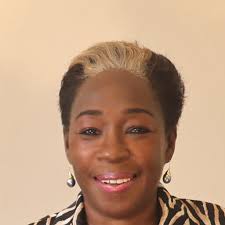
Olatoun Gabi-Williams
By Prisca Sam-Duru
GABI Williams Alzheimer’s Foundation, GWAF, last week unveiled another life-saving programme to mark the 2024 World Alzheimer’s Month.
GWAF is a charity organisation established in 2017 to honour the life and work of Dr Gabi Williams, a public health pioneer who lived with Alzheimer’s Disease for about ten years.
The foundation was designed to promote Alzheimer’s disease awareness and reduce its related stigma in Nigeria. GWAF, which identifies and strengthens the available patient and caregiver infrastructure, since inception, has undertaken commendable interventions and programmes across various categories of audience using multi-sectoral approaches.
The programme unveiling took place during the Foundation’s maiden Executive Forum held in Lagos. Tagged, ‘Brain Health in the Corporate Structure’, the programme highlighted the importance of making the brain health of individuals in the corporate structure a top priority.
In her presentation, General Manager, Leventis Motors, Benita Adelore harped on the need to talk about brain disease and every other health challenge that comes with aging. She advocated for brain health awareness for executives of corporate Nigeria.
According to her, in corporate environments in the country especially, people have conversations around insurance but not aging and age related diseases adding, “It’s important we begin to have conversations about how to manage and prevent diseases like Alzheimer which is a kind of dementia, and even things like menopause.”
A Trustee of GWAF, Olatoun Gabi-Williams in her opening speech, explained that Alzheimer’s disease is a disease of the brain which leads to loss of memory and thinking skills and ultimately leads to inability to carry out all the basic functions needed for daily living.
In her words, “Poor health of the brain is linked to several factors such as hypertension. Type 2 diabetes, hyperlipidemia, smoking and periodontal disease. The identification and treatment of these disorders are important in the fight against Alzheimer’s disease.”
She said the foundation creates awareness from every key perspective on the disease emphasising on healthy aging and the health of our brains.
Olatoun also hinted that to drive home the campaign, GWAF has created and is broadcasting 2D/3D animated videos on platforms such as BRT buses, cinema houses and online TVs. It also premiered ‘Remembering Tomorrow’, a brain health message from the foundation.
The Keynote speaker, Dr Abisola Gabi-Williams likened the kind of regression caused by Alzheimer’s dementia to a butterfly regressing to its caterpillar stage, saying that it imposes an unrelenting loss of cognitive capacity and physical function on sufferers.
Dr Gabi-Williams however stated that there’s hope as “New treatments like Lecanemab, which can slow the rate of disease progression in patients with early Alzheimer’s symptoms by up to 30% are rising on the horizon of medical breakthrough,” even as she promised to ensure the treatments are accessible and affordable for Nigerians, with the support of the federal government and healthcare organisations.
She pointed out that “One major problem we need to first confront is that many Nigerians do not recognise the symptoms of Alzheimer’s disease. When confronted with the disease’s symptoms, they will attribute it to normal aging or in some cases, demonic possession. Without a proper diagnosis, families endure added suffering unaware of available support services and evolving treatments that can help mitigate their suffering.”
Gabi-Williams further released an acronym- F-L-O-W, that can help people recognise the symptoms of Alzheimer’s dementia. “F stands for forget, L is for lose (losing important things all the time); O is for Overlook (overlooking basic things like dressing appropriately, paying your bills, etc.) and W stands for Wander, which has to do with wandering around aimlessly and getting lost),” she explained.
Disclaimer
Comments expressed here do not reflect the opinions of Vanguard newspapers or any employee thereof.